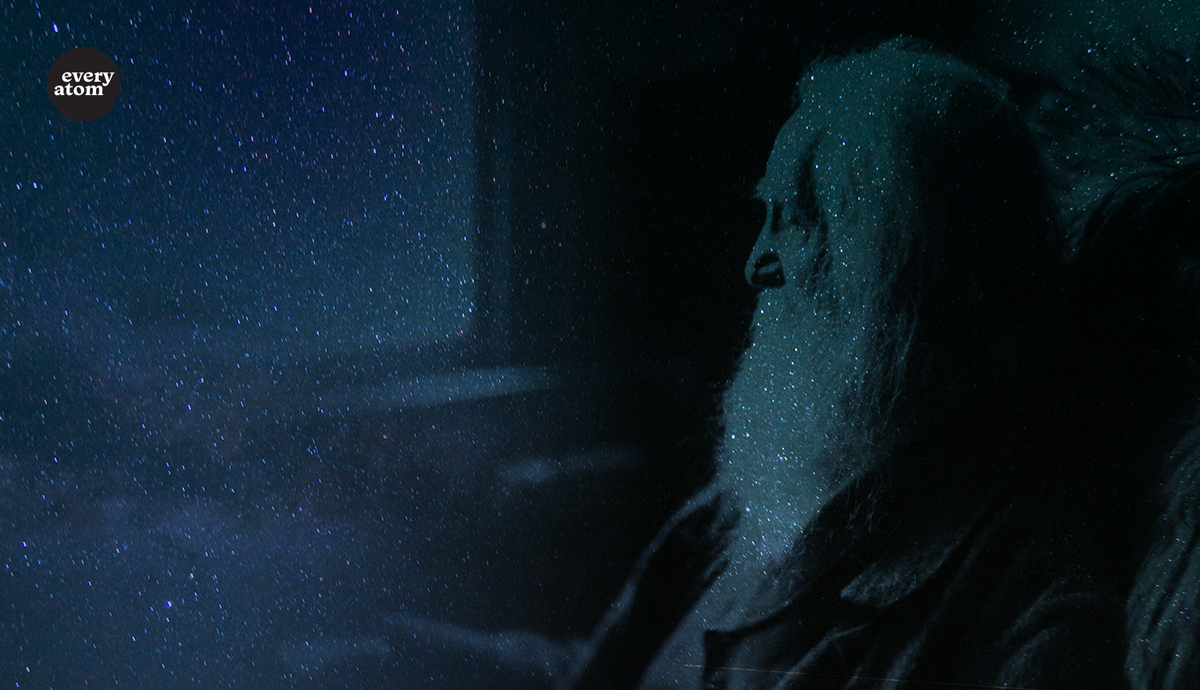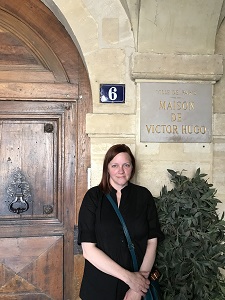Every Atom | No. 44
Introduction to Every Atom by project curator Brian Clements
A word of reality . . . . materialism first and last imbueing.
We are many pages into the untitled poem that would become “Song of Myself” and the poet still hasn’t told us his name. It’s not in the sprouting tendrilled font on the cover of the book or on the title page or on the poet’s portrait, where his loosened shirt, pushed up hat, and hand in pocket mark him more laborer than literati. But in just a moment this sprawling, sexual, sympathetic, prophetic poet who has taken us into him and with him on a sweeping journey through the contours of exterior and interior human and vegetable life in his republic is about to name himself to us for the first time. He has delayed this credit or blame or individuation until the crescendo of the song of himself leads to it. So let’s look at what leads right up to this naming:
A word of reality . . . . materialism first and last imbueing.
Hurrah for positive science! Long live exact demonstration!
Fetch stonecrop and mix it with cedar and branches of lilac;
This is the lexicographer or chemist . . . . this made a grammar of the old cartouches
These mariners put the ship through dangerous unknown seas,
This is the geologist, and this works with the scalpel, and this is a mathematician.
Gentlemen I receive you, and attach and clasp hands with you,
The facts are useful and real . . . . they are not my dwelling . . . . I enter by them to an area of the dwelling.
I am less the reminder of property or qualities, and more the reminder of life,
And go on the square for my own sake and for others’ sakes,
And make short account of neuters and geldings, and favor men and women fully equipped,
And beat the gong of revolt, and stop with fugitives and them that plot and conspire.
He wants to have a brief word with us about nothing less than reality, which begins and ends with the material, but his grokking of the material might not be filtered through the scientific empiricism that his contemporaries are anticipating. Facts are important, the poet tells us, but they are a door, not a house. They invite him in but they are not his habitation. Where he dwells is beyond them, not in the measurable specifics, but in life. For this poet the facts are the just the edges of life, good for recording and grasping and putting to certain use, but not for being. While scientists remind us of properties and qualities—that is, to put them back in our minds—our poet tells us he is a reminder of life.
The newly industrialized republic was becoming a biopolitical state. It was harnessing and moving life from the country to the cities, from native settlements to territories of displacement, from Africa to the American South, from fields and forests into factories. Its policies, legitimized as scientific and rational and made powerful and efficient through technology, classified some life as worthy and some life as unworthy, some life to be nourished at the expense of other life. This vast poet of multitudes intuited that behind those exact demonstrations of positive science was a current of life itself, a mass of living beings for whom he felt a sympathy, duty, and kinship that was belied by the hierarchies and conquests of the sciences, and it was that life that he wanted to put back in our minds.
So the poet goes “on the square”—a term that means both in public and completely honest—and dispenses with “neuters and geldings”—not literal ones, of course, but people who have made their bodies and behavior docile. With men and women “fully equipped” for a struggle, he calls for revolt and lingers with outlaws and those who threaten the social order.
It’s only then, after he has moved beyond experts and their orderly, useful knowledge and stopped with the vital and the disobedient, that this reminder of life names himself, a universe unto himself within the mass of the dispossessed:
Walt Whitman, an American, one of the roughs, a kosmos.
Recommended
Nor’easter
Post-Op Appointment With My Father
Cedar Valley Youth Poet Laureate | Fall 2024 Workshop







